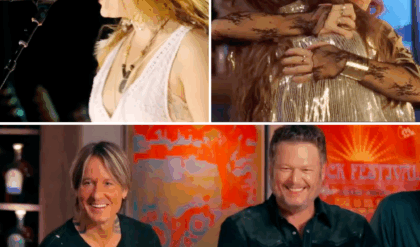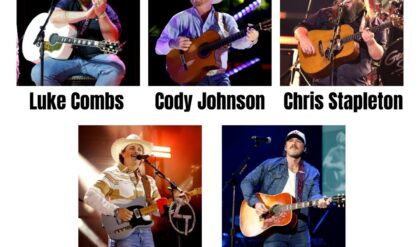As the red chairs of The Voice swivel into their 28th season, one coach is already casting a shadow over the competition: Michael Bublé. The velvet-voiced Canadian crooner, fresh off back-to-back victories in Seasons 26 and 27, wasted no time transforming the Blind Auditions into his personal recruitment rally. With a lineup boasting a 14-year-old Broadway sensation and two vocal dynamos who could shatter glass—or judges’ composure—Team Bublé looks less like a squad and more like a championship roster primed for a historic three-peat. From the premiere’s opening notes on September 22, Bublé’s strategic snags have fans buzzing: Is this the season he cements his legacy as the show’s unbeatable mentor? As Niall Horan, Reba McEntire, and Snoop Dogg scramble to catch up, Bublé’s early dominance underscores why he’s the only returning coach from last season—and why his team feels like destiny’s favorite.
Season 28 kicked off with the familiar fanfare: Host Carson Daly’s easy charisma, a revamped stage glittering under LED lights, and the Blind Auditions’ high-stakes game of musical chairs. But this year, the format tweaks—the Carson Callback Card for second chances and artist-chosen Battle pairings—added fresh tension. None loomed larger than Bublé’s chair, however. The 50-year-old Grammy winner, whose own career spans jazz standards to pop anthems, entered with the swagger of a two-time champ. His Season 26 triumph with Filipino powerhouse Sofronio Vasquez, followed by blues-soul sensation Adam David’s Season 27 crown, marked him as the fourth coach (after Kelly Clarkson, John Legend, and Horan) to win on debut—and the first to do it consecutively. “I’ve got the blueprint now,” Bublé quipped during a pre-premiere junket, his eyes twinkling with that trademark mischief. “But it’s not about me; it’s about finding voices that make the world better.”
His blueprint ignited on premiere night. First up for Bublé’s bounty: Jazz McKenzie, a 24-year-old Nashville firecracker whose Tina Turner cover of “What’s Love Got to Do With It” ignited a four-chair frenzy. McKenzie’s performance was pure electricity—a gritty growl that morphed into silken highs, her stage presence commanding like a storm rolling off the Smoky Mountains. All four coaches spun: Snoop Dogg praising her “soulful swagger,” Horan calling it “undeniable pop-country gold,” McEntire beaming with maternal pride, and Bublé? He leaped up, crooning along to the chorus in a spontaneous duet that had the audience roaring. “Jazz, you’re a once-in-a-lifetime talent—the kind that doesn’t just sing, she commands,” Bublé declared, his pitch laced with promises of Grammy-level grooming. McKenzie, torn but swayed by his vision of blending her R&B roots with Broadway flair, chose Team Bublé. “Michael gets the fire in my belly,” she later shared backstage, her voice still buzzing from the adrenaline. Fans dubbed it the “steal of the season,” with #TeamBuble trending after just 10 minutes of airtime.
But Bublé’s real coup came moments later with Max Chambers, the pint-sized phenom who’s already a Broadway veteran at 14. Hailing from Shreveport, Louisiana, Chambers exploded onto the stage in a powder-blue suit, channeling the Jackson 5’s “I Want You Back” with infectious footwork and a falsetto that pierced the Dolby Theatre’s rafters. The kid didn’t just sing; he danced—moonwalking mid-verse, popping and locking like a mini-Michael, his energy so electric it short-circuited the coaches’ composure. Bublé and McEntire turned first, but as Chambers revealed his age and creds—last year’s run as young Michael Jackson in MJ the Musical—the panel erupted. Horan slapped his forehead in mock regret, Snoop nodded approvingly (“Lil’ homie got moves!”), and McEntire gushed, “I’ve recorded Aretha and Diana—let me show you diva realness!” Bublé, however, countered with charm offensive: He jumped onstage for an impromptu jig, mirroring Chambers’ steps and belting the hook in perfect harmony. “Max, you’re not just talented; you’re a showman born for this,” he said, eyes locked on the teen. Chambers, grinning ear-to-ear, picked Bublé, quipping, “Michael dances like my grandpa—but sings like a king.”
Chambers’ addition wasn’t just adorable; it was strategic genius. At 14, he’s the season’s youngest contender, bringing viral potential and crossover appeal. His Broadway bona fides—four shows a week while acing algebra—add a narrative hook: The prodigy chasing pop stardom after stage lights. “Max reminds me of myself at that age—nervous but unstoppable,” Bublé reflected in a post-episode interview, hinting at mentorship plans involving vocal warm-ups with his own kids. Early buzz positions Chambers as a dark horse for the finale, with TikTok edits of his audition racking up 5 million views overnight. “Bublé just drafted the next MJ,” tweeted @VoiceInsider, sparking a meme storm of Chambers in a fedora.
Night two doubled down on Bublé’s dominance, landing him two more heavy-hitters: Lucas Beltran and Max Cooper III. Beltran, a 19-year-old Peruvian transplant in Philadelphia, delivered a sultry spin on Lou Rawls’ “You’ll Never Find Another Love Like Mine,” his baritone rich as aged whiskey, laced with jazz inflections that evoked smoky lounges. McEntire and Bublé turned, but Beltran’s youth stunned them— “You’re 19? Honey, you sound 40 with soul!” McEntire exclaimed. Bublé, sensing a kindred spirit in the bilingual balladeer, pitched hard: “Lucas, your voice is timeless—like mine, but with that Latin fire. I’ll teach you to own the Great American Songbook… and maybe throw in some salsa.” Beltran, eyes wide with awe, joined Team Bublé, later confiding, “Michael’s the coach who sees my weird mix of worlds.”
Then came Cooper, a 23-year-old keyboard wizard from Chicago, whose jazzy reworking of Mike Posner’s “Cooler Than Me” was a masterclass in cool confidence. Snoop turned first, drawn to the hip-hop undercurrents, but as Cooper’s fingers danced across the keys—blending bebop runs with trap beats—the turns cascaded: Horan for the pop edge, McEntire for the storytelling, and Bublé sealing the four-chair turn with a whistle. “Max, you’re a genre-bender like me—pop with jazz bones,” Bublé enthused, revealing he’d once covered Posner in concert. To clinch it, he joined Cooper onstage for an a cappella harmony, their voices intertwining like old friends. Cooper chose Bublé, citing the “instant vibe.” With Beltran and Cooper, Team Bublé now boasts four of 12 slots filled by artists who span ages, styles, and stories—a balanced attack primed for Battles.
Bublé’s rapid roster-building isn’t luck; it’s legacy. His undefeated streak—Season 26’s Vasquez, a one-chair-turn underdog who stormed to victory with Filipino flair; Season 27’s David, the blues-soul revivalist who edged out finalists in a nail-biter—has honed his eye for diamonds in the rough. “I look for heart first, technique second,” Bublé explained during filming, his coaching style a blend of tough love and showbiz savvy. Unlike Horan’s boy-band polish or McEntire’s country warmth, Bublé’s jazz pedigree unearths versatile threats: Singers who can croon standards one night, slay pop the next. His teams’ stats back it: Back-to-back finalists, 80% advancement rates through Knockouts. This season, with no rookies diluting the panel, Bublé faces stiffer competition—Horan gunning for a three-peat himself, McEntire’s maternal magic, Snoop’s street cred—but his early hauls suggest he’s ahead.
Fan frenzy has only amplified the hype. Post-premiere, #TeamBuble surged to No. 1 on X, with 1.5 million posts dissecting auditions like Super Bowl plays. “Bublé’s got the kid, the crooner, and the crossover queens—final four locked!” raved @VoiceSuperfan, her thread on Chambers’ moves going viral at 300K likes. Reddit’s r/TheVoice subreddit exploded with mock brackets, 65% predicting a Bublé win. TikTok? A goldmine: Duets of McKenzie’s Tina cover with Bublé’s harmonies hit 10 million views, while Chambers’ Jackson homage spawned dance challenges from tweens to grandparents. Even skeptics concede: “Snoop’s fun, but Bublé builds winners,” posted u/SongbirdStrategist in a 12K-upvote analysis.
Yet, Bublé tempers the triumph with humility. In a Variety sit-down, he admitted, “Winning twice? Thrilling. But three? Pressure’s on. These kids—Jazz’s grit, Max’s joy, Lucas’s depth, Max C.’s cool—they’re the stars. I’m just the guy turning the chair.” His off-camera rapport shines: Backstage clips show him FaceTiming Vasquez for pep talks, gifting Chambers a signed MJ poster. As Battles loom (October 14 premiere), with advisors like Cynthia Erivo rumored for Team Bublé, the path to a third win crystallizes: Leverage the prodigy for showstoppers, the powerhouses for ballads.
In a season stacked with all-stars, Team Bublé emerges as the one to beat—not through gimmicks, but genuine alchemy. From premiere pandemonium to potential dynasty, Bublé’s roster embodies The Voice‘s magic: Raw talent, refined by belief. As Horan jokes, “Michael’s team is stacked—guess I’ll just have to steal ’em in Battles.” For now, the crooner holds court, his championship sights sharper than ever. With voices this strong, Season 28’s confetti might just rain red.





